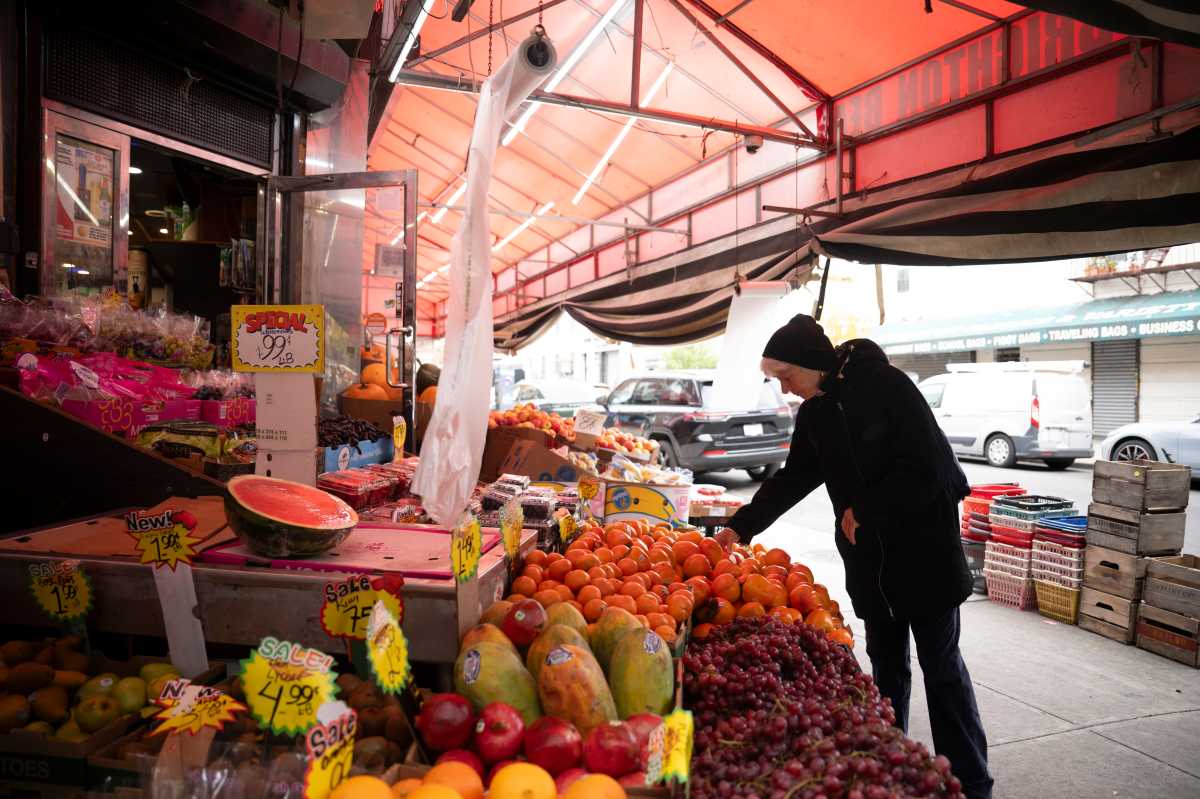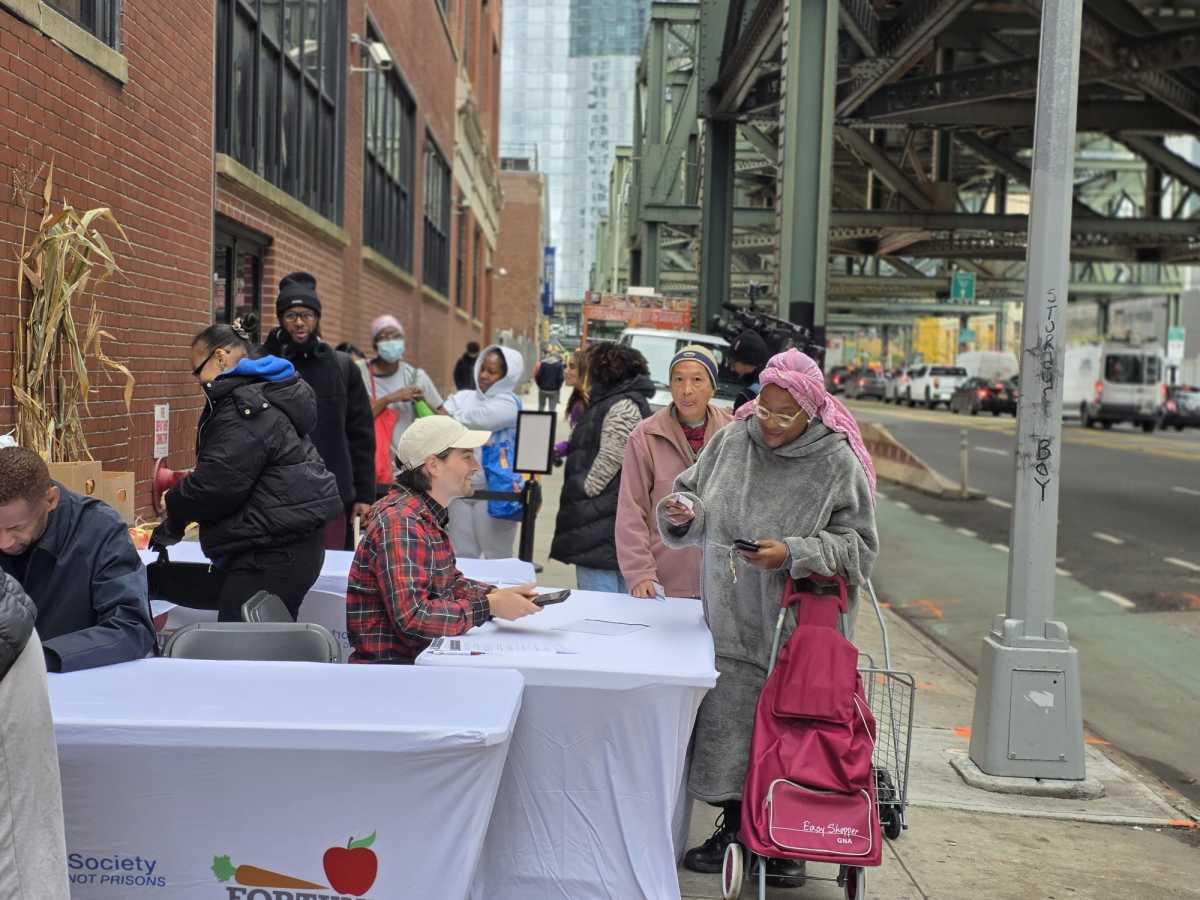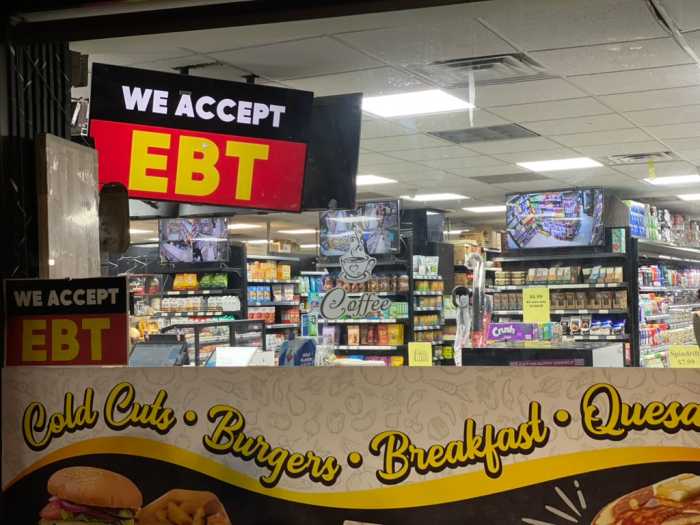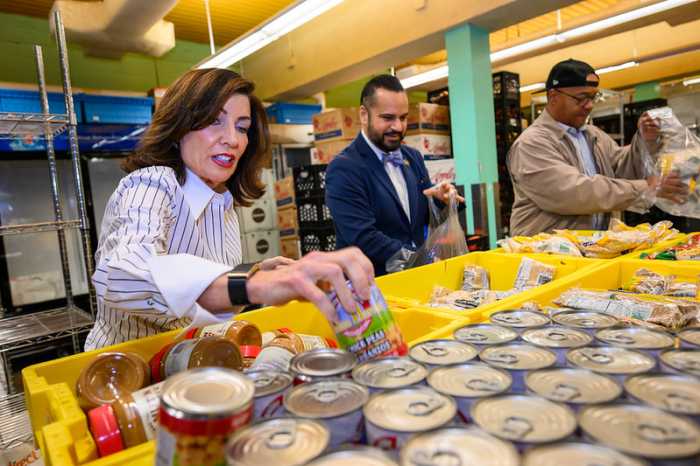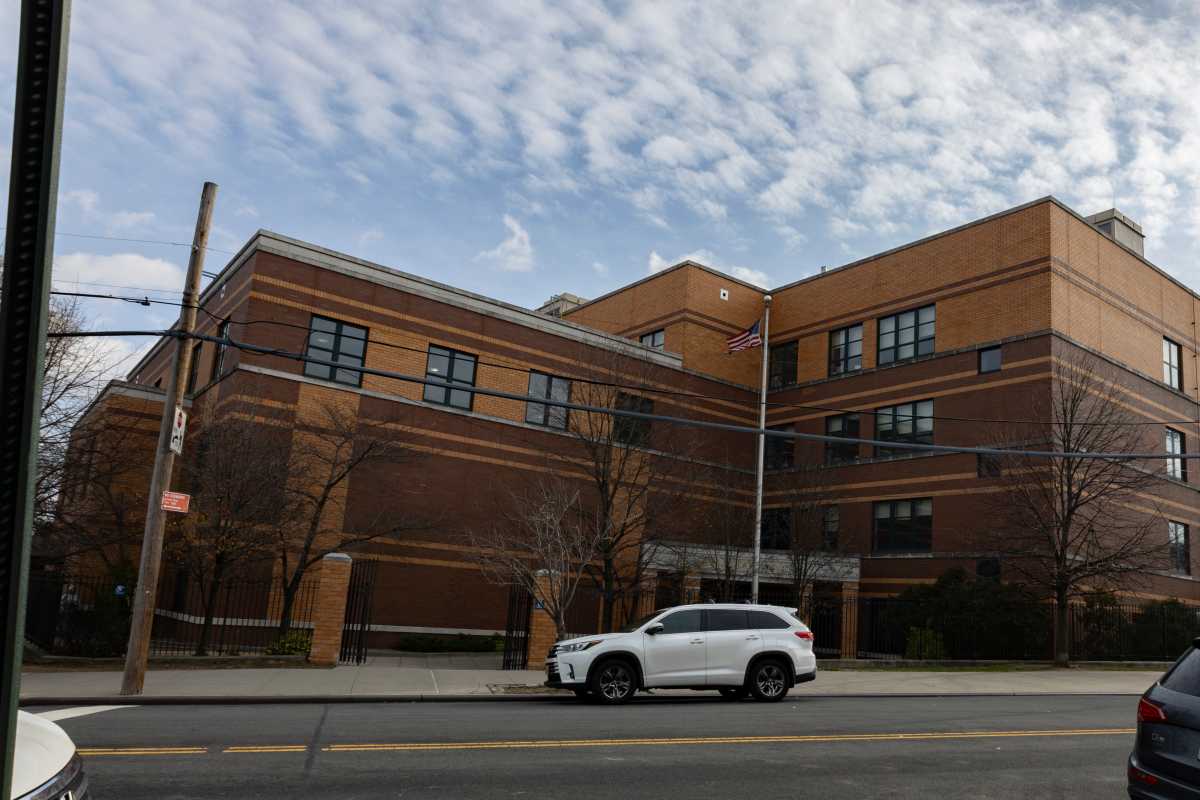The U.S. Supreme Court on Friday night temporarily paused a lower-court order that would have required the Trump administration to fully restore November’s Supplemental Nutrition Assistance Program (SNAP) benefits by the end of the day, just hours after Gov. Kathy Hochul announced that New Yorkers would begin receiving their full benefits starting Sunday.
The emergency administrative stay, issued by Justice Ketanji Brown Jackson, leaves 1.8 million New York City residents in limbo while a federal appeals court considers whether the administration must immediately resume full funding for the program, which has been disrupted during the ongoing federal government shutdown.
The underlying orders from the U.S. District Court in Rhode Island had directed the U.S. Department of Agriculture to fully fund November SNAP benefits and distribute them by Nov. 7 , an effort to halt what judges called unlawful withholding of aid during the shutdown.
But the Trump administration quickly appealed and sought emergency relief from higher courts.
Earlier Friday, the First Circuit Court of Appeals refused to put the lower-court ruling on hold but said it would “issue a decision… as quickly as possible.”
The Supreme Court’s order, issued later in the evening, temporarily blocks enforcement of the district court’s mandate to allow the appeals court time to rule.
Under the order, the stay remains in effect until 48 hours after the First Circuit decides whether to grant the administration a longer-term pause, or until the Supreme Court says otherwise.
The administration argues it has exhausted SNAP’s contingency reserve and that complying with the district court’s orders would require shifting approximately $4 billion from other food assistance programs, including school meals for nearly 30 million children — a move it says Congress has not authorized.
Announcing the filing of the emergency Supreme Court application, U.S. Attorney General Pam Bondi criticized Rhode Island Judge John McConnell, saying his ruling was “judicial activism at its worst,” accusing him of attempting to influence political negotiations over SNAP and other programs.
She said the court “took the current shutdown as an effective license to declare a federal bankruptcy and appoint itself the trustee, charged with picking winners and losers among those seeking some part of the limited pool of remaining federal funds.”
Whiplash
Gov. Hochul, who only hours earlier had celebrated the Rhode Island court ruling as a victory for than three million New Yorker state residents who rely on SNAP, blasted the Trump administration for “cruelty” in withholding aid.
“President Trump is hellbent on preventing millions of Americans from putting food on the table. He’s made decision after decision to withhold funding that feeds families, seniors and children — and continues doubling down on this cruelty by challenging the courts’ clear orders,” she said in a statement.
Before the benefits lapsed, Hochul had previously stressed that state spending could not replace federal SNAP funding in the long term, noting that New York administers approximately $650 million per month in federal benefits.
New York Attorney General Letitia James, who was part of a multistate coalition suing to force full funding, expressed frustration that the fight had reached the nation’s highest court, calling the decision to pause full funding a “tragedy for the millions of Americans.”
“It is disgraceful that the Trump administration chose to fight this in court instead of fulfilling its responsibility to the American people,” James said. “Every day the federal government delays is another day that children, seniors, and families face real pain and suffering.”
The legal battle amid the shutdown-related funding lapses has sown confusion among recipients and retailers. The Attorney General’s Office said Friday it received reports of New Yorkers unable to use their EBT cards at authorized SNAP retailers, prompting cease-and-desist letters to chains including ShopRite and Hannaford.
New Yorkers who have been wrongfully denied the use of their EBT cards can file a complaint with the OAG here.
This article was updated at 10:23 p.m. on Nov.7.



